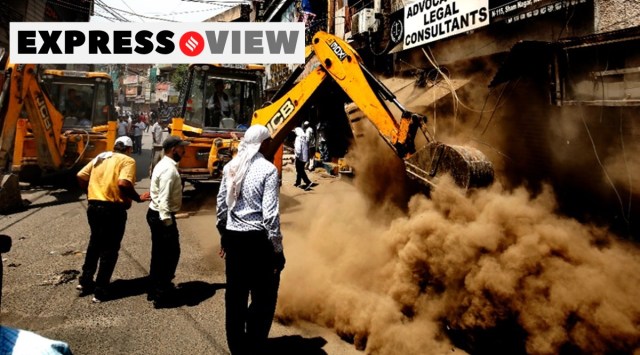
There are, in the laws of the land, ways and means to deal with illegal constructions and encroachments in urban areas. But by any measure, the South Delhi Municipal Corporation’s demolition drive at Madanpur Khadar invites several questions. And coming as it does on the heels of the demolitions at Jahangirpuri last month, in the wake of communal violence and tension, it threatens to erode confidence in the impartiality of the BJP-run Municipal Corporation of Delhi. The bulldozer — and its perceived targeted use recently by the MCD — as a symbol of governance is threatening. Its being ranged against lower-middle class, working people is cause for deep unease.
It is difficult not to read into the spate of demolitions a larger, divisive politics. SDMC chairman Rajpal Singh said: “These people (locals) are Rohingyas and Bangladeshis. AAP supports them and obstructed MCD in its duties.” Even AAP has played along until now. Thus far, there is little evidence to show that residents in Madanpur Khadar are illegal migrants. But such statements of dubious veracity appear part of the playbook that was deployed in Jahangirpuri and Khargone, Madhya Pradesh in April. The bulldozer in this context stands for petty vindictiveness of an overpowering state. Delhi’s municipal administration must rethink its approach to allegedly illegal constructions. Else, as in Jahangirpuri, the judiciary must step in.